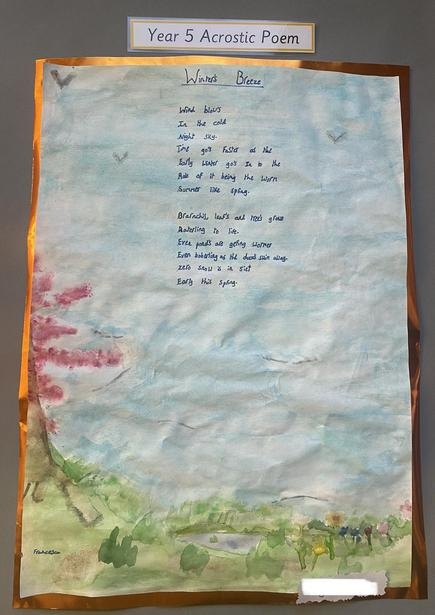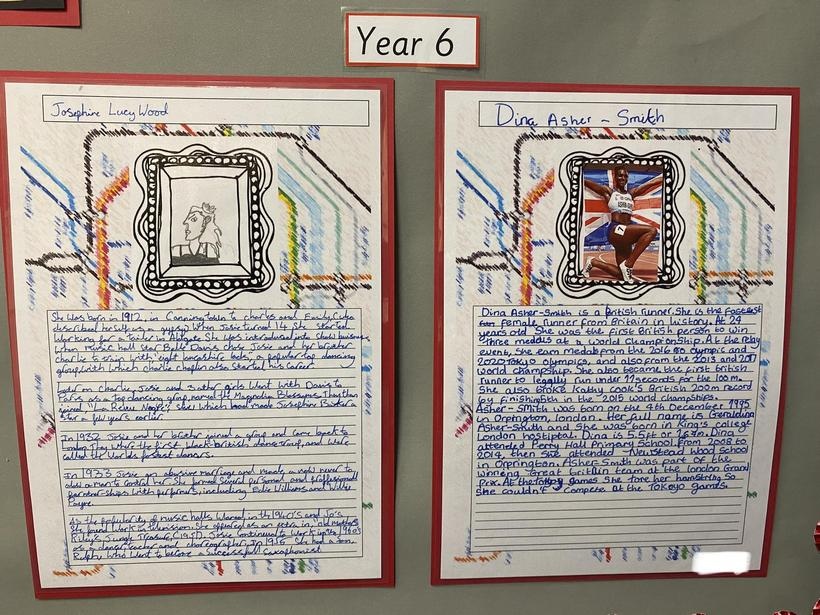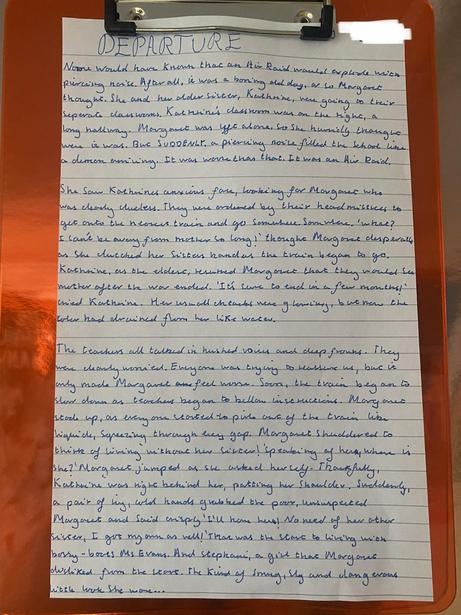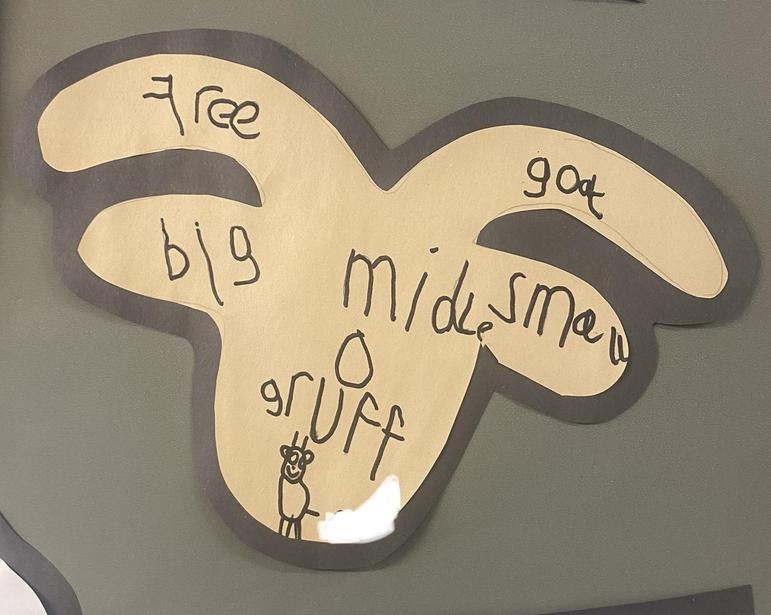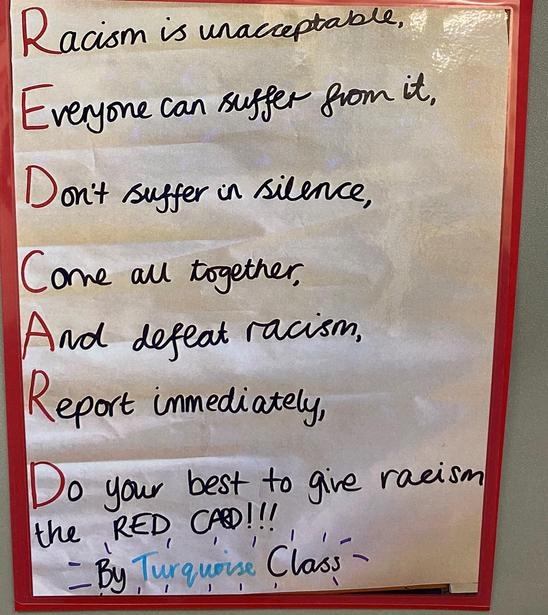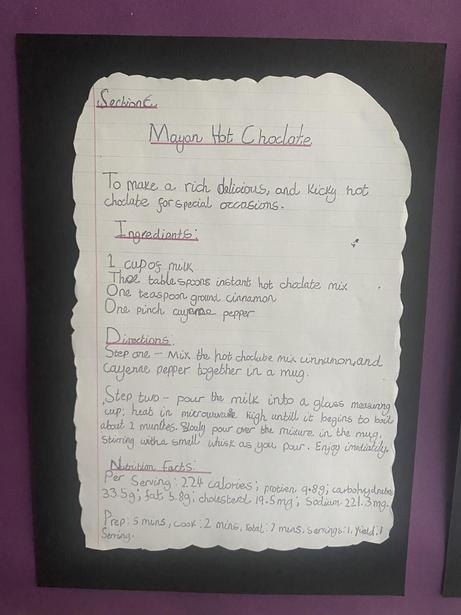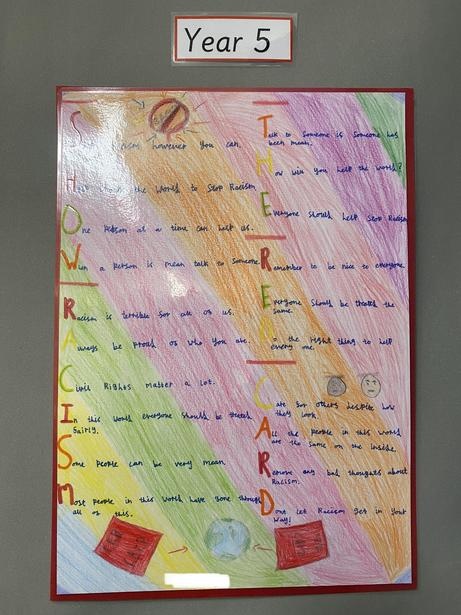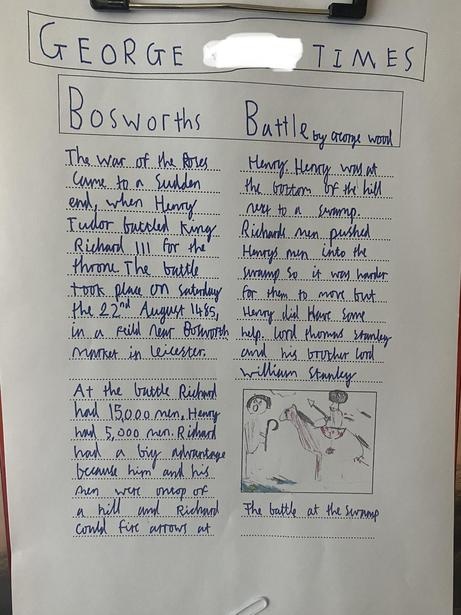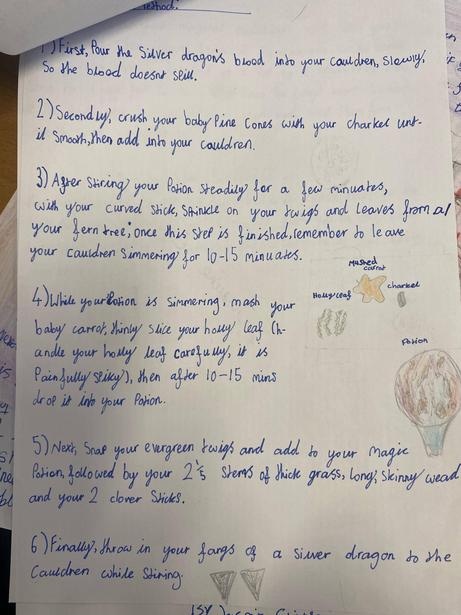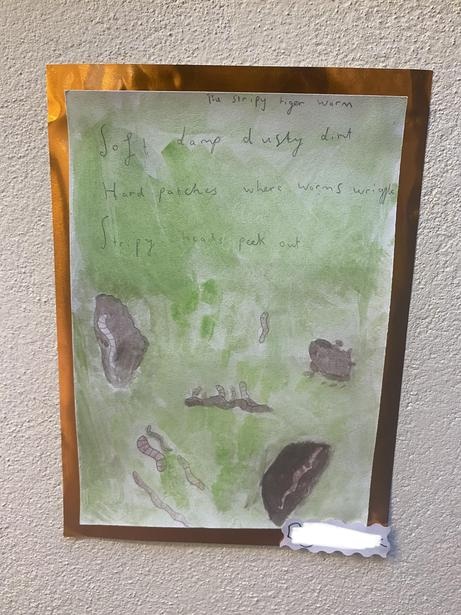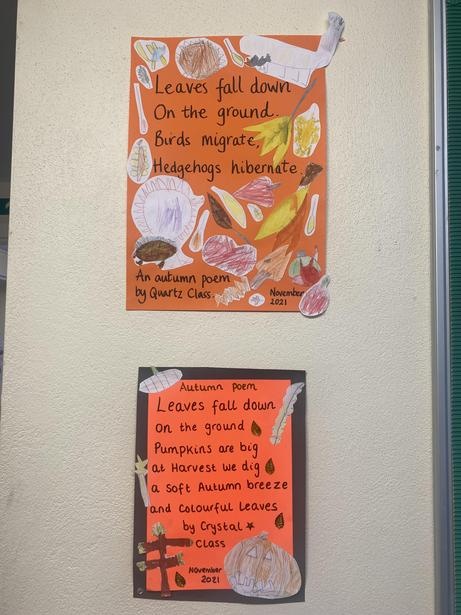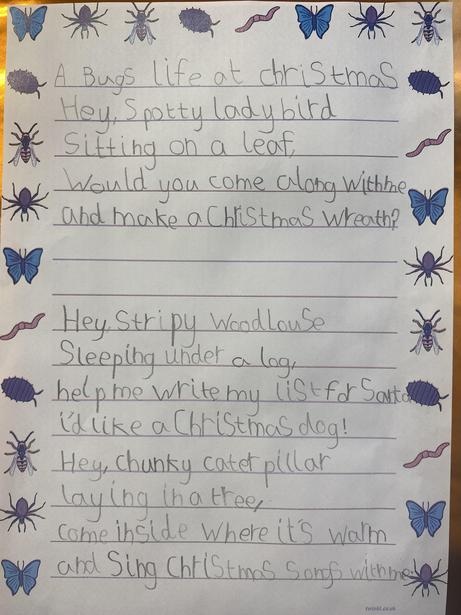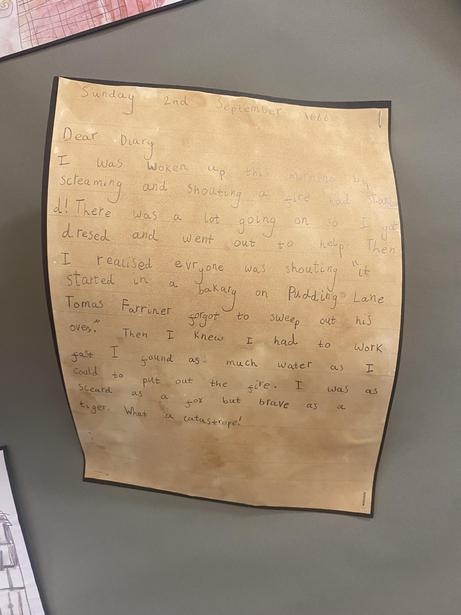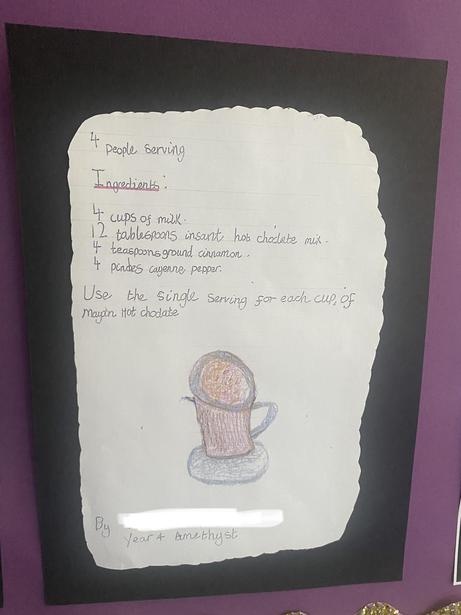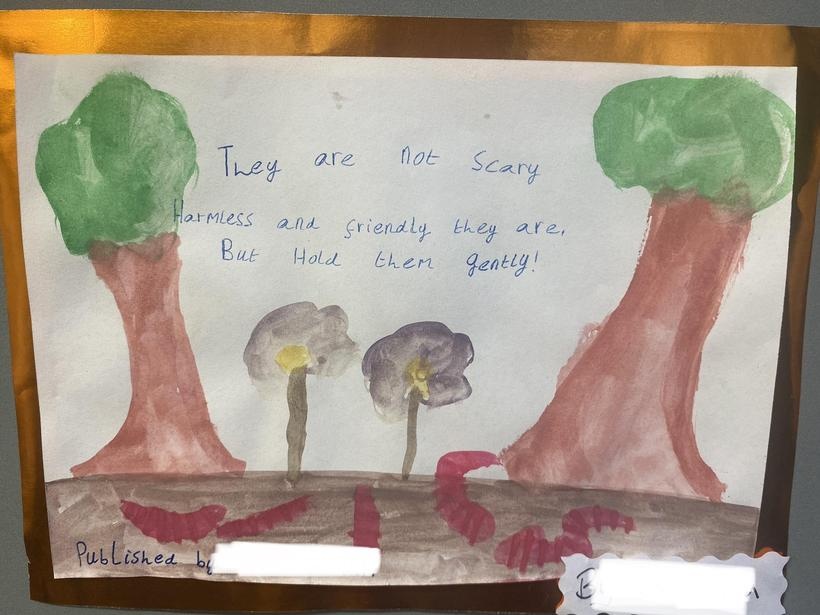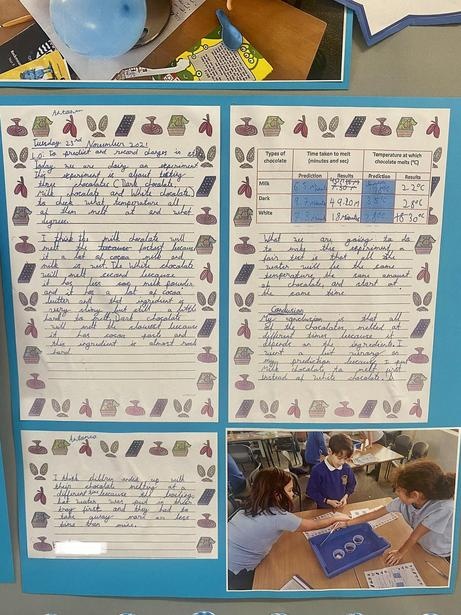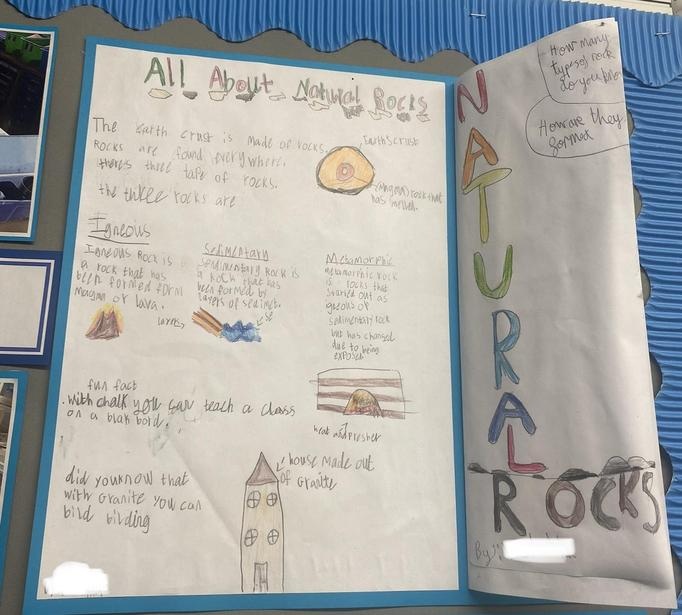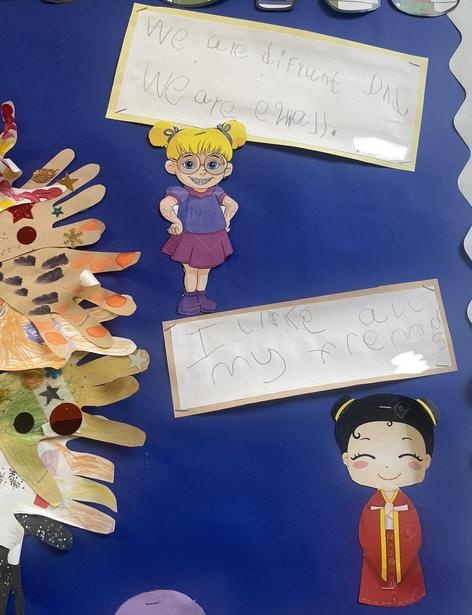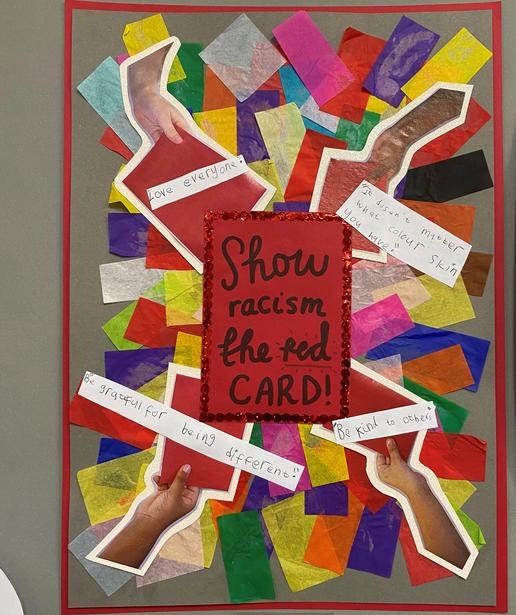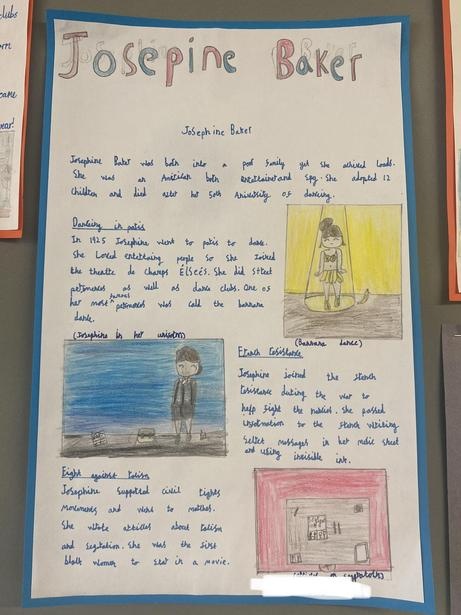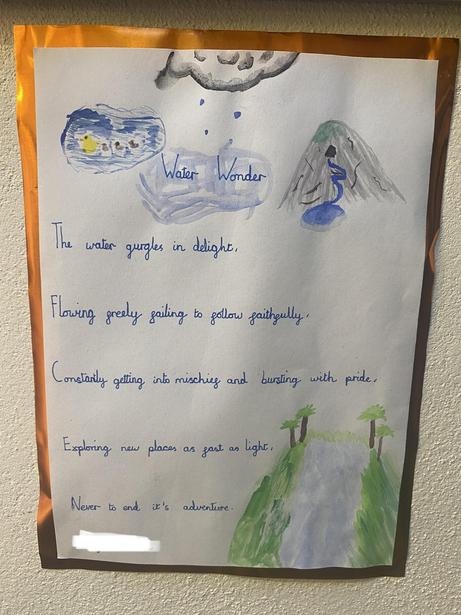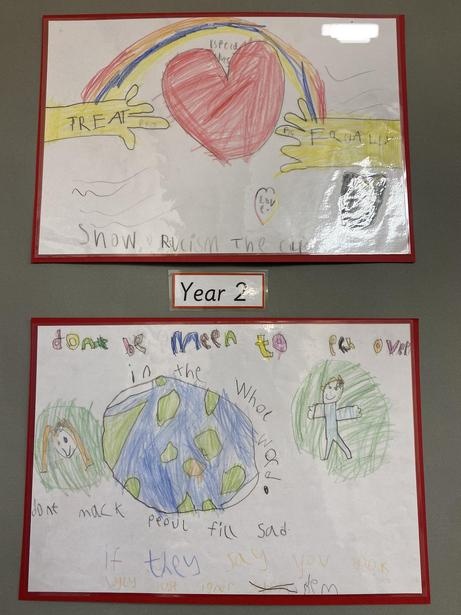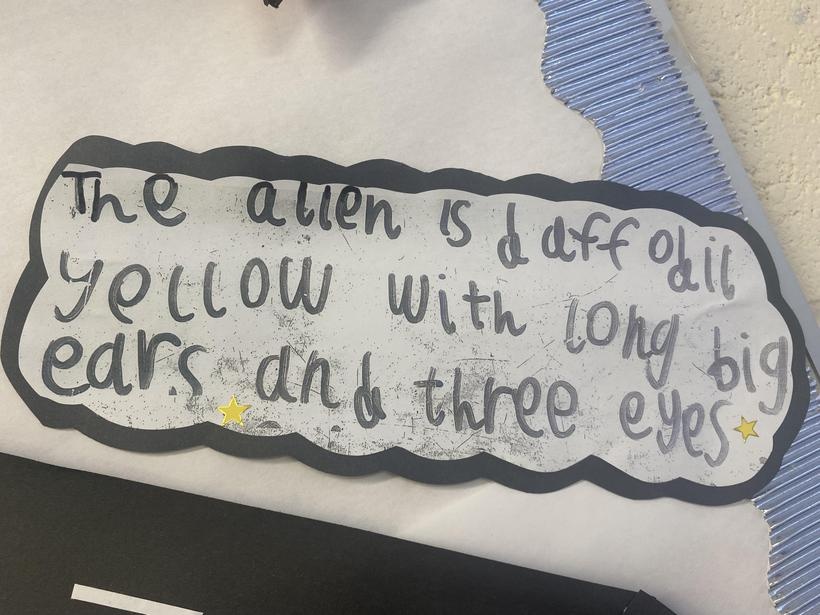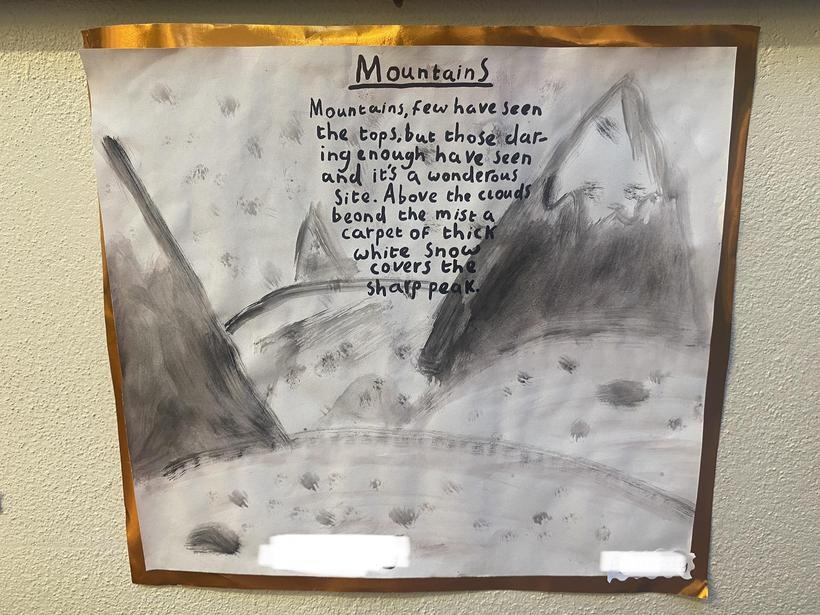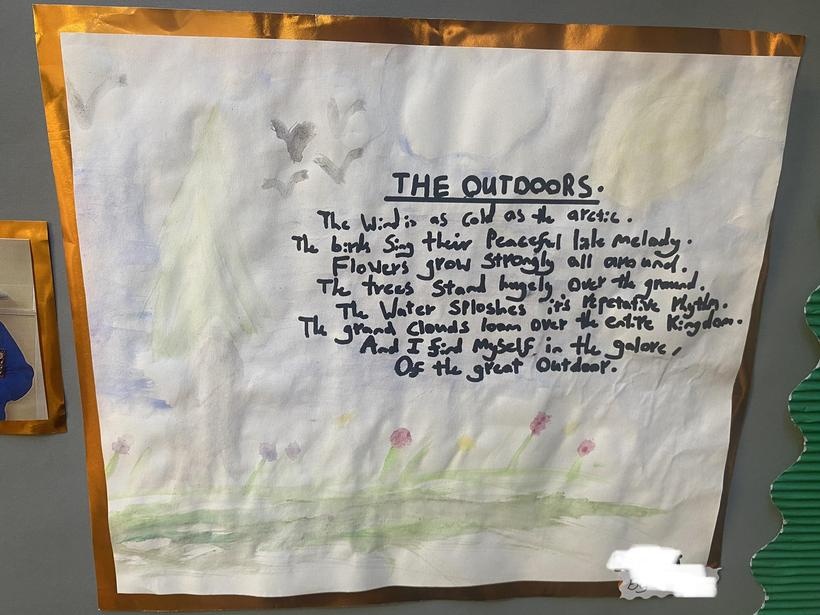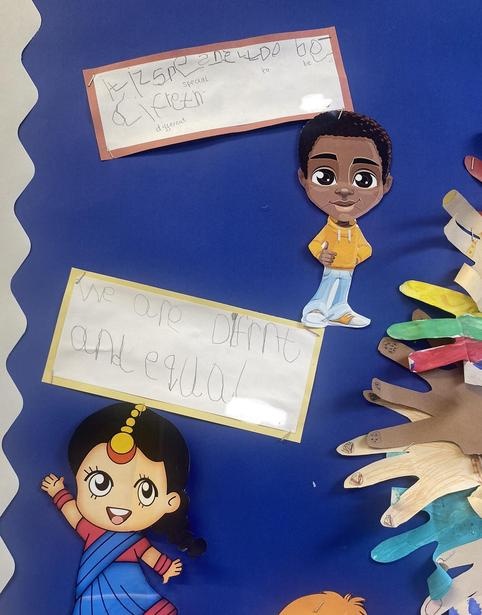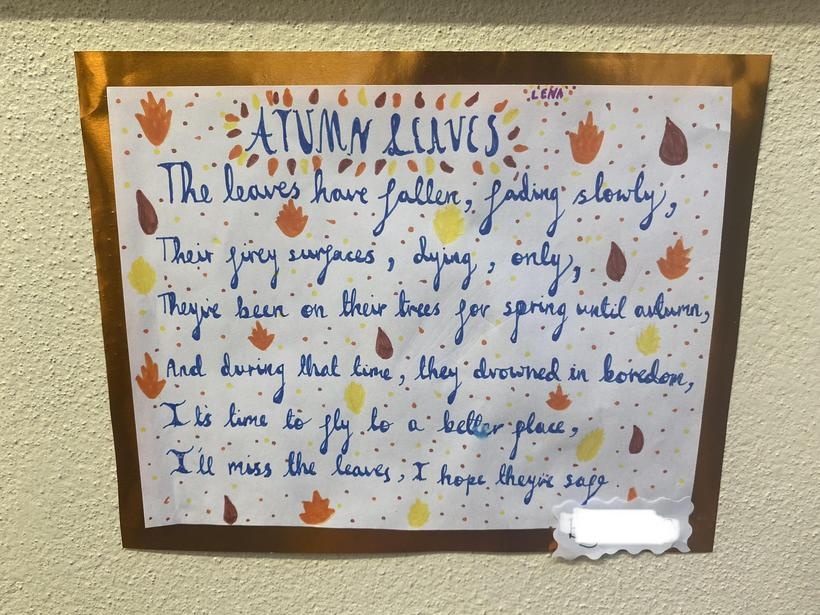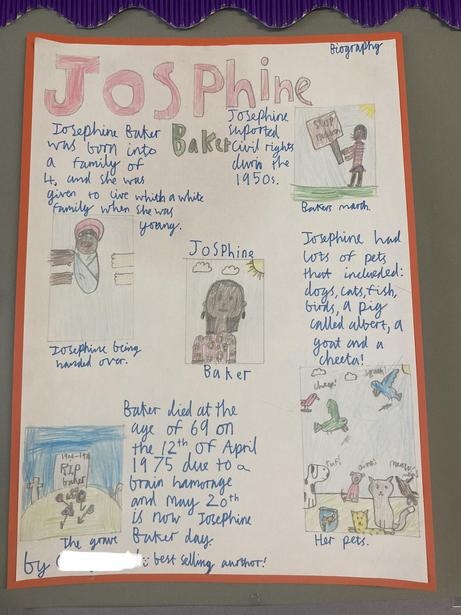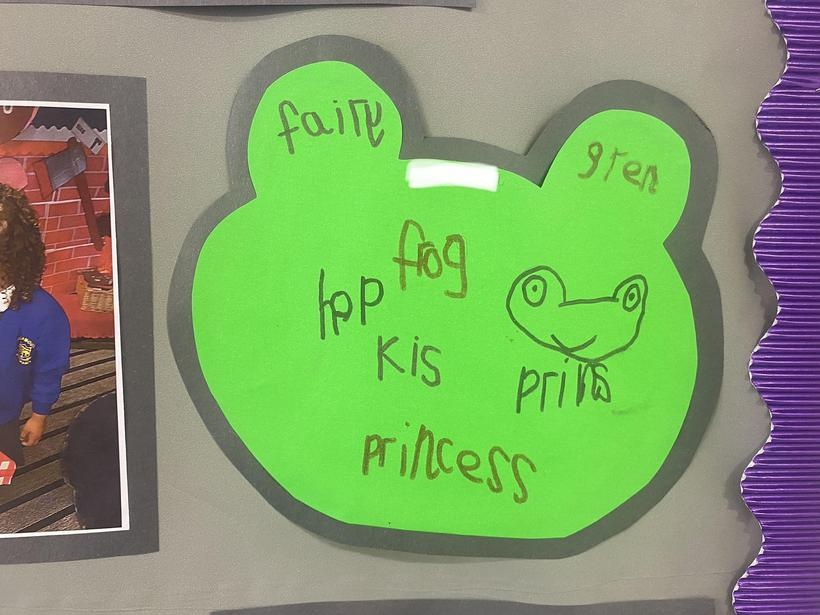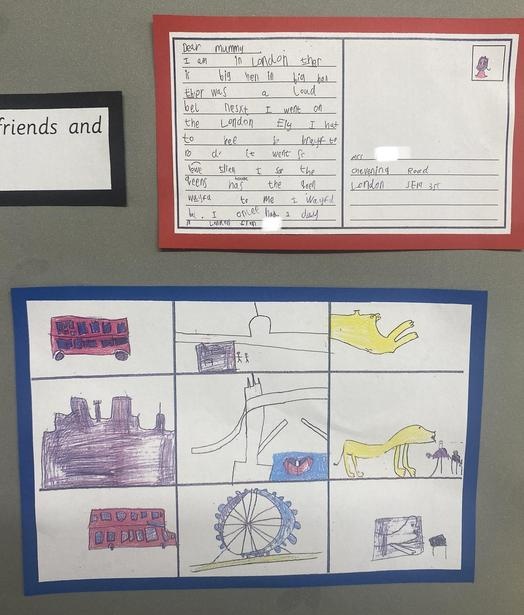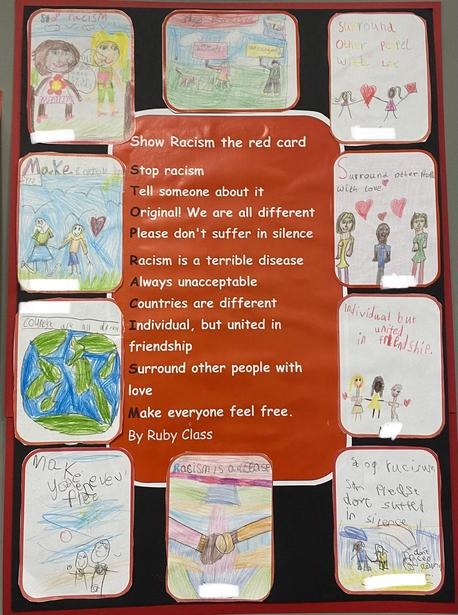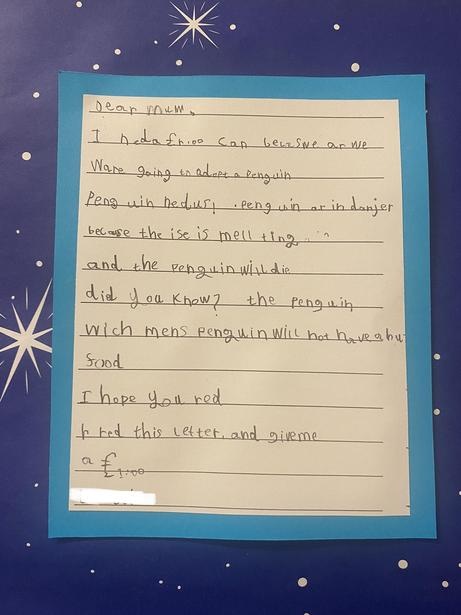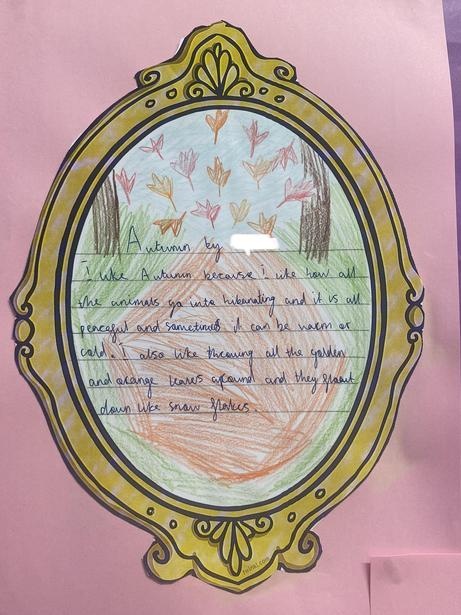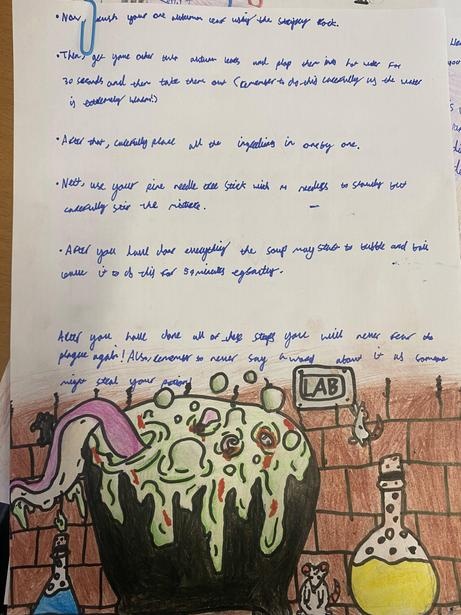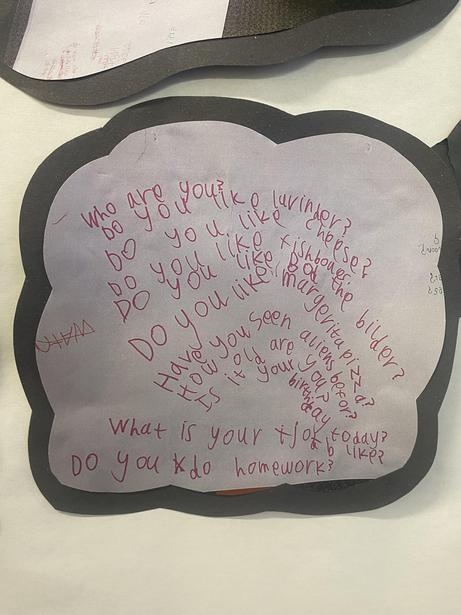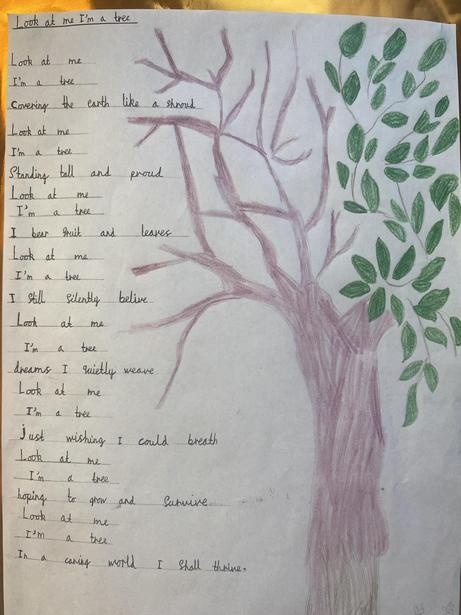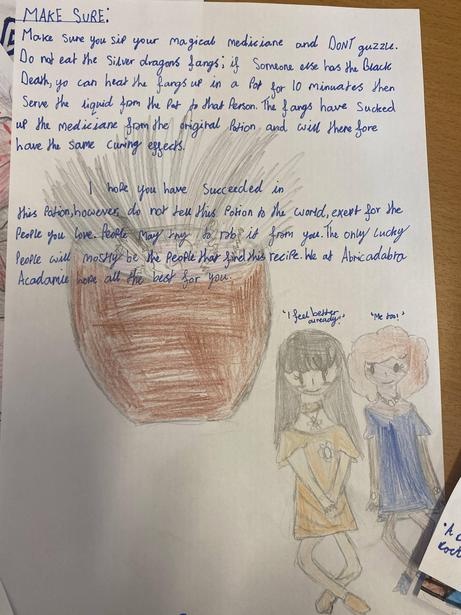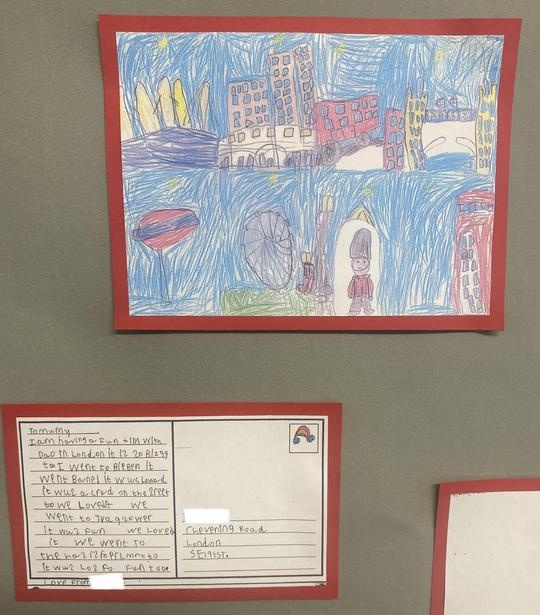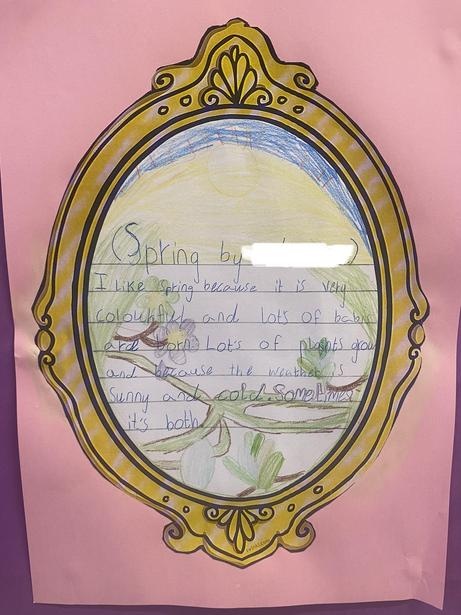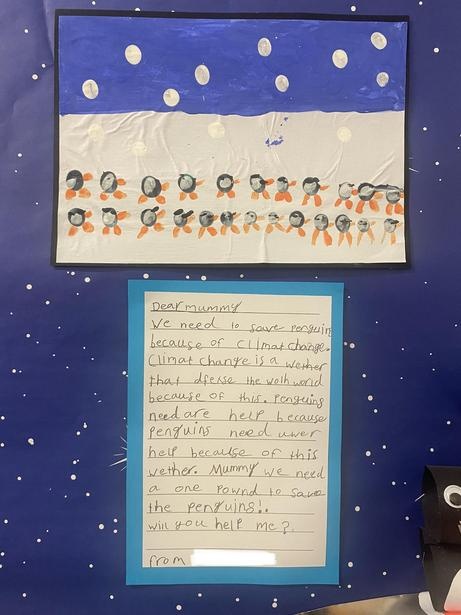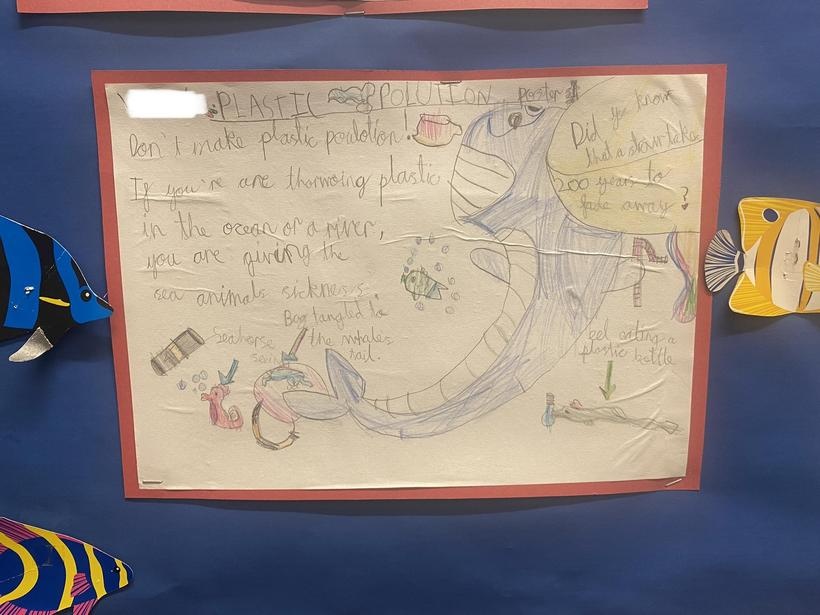English
Writing Overview
Intent
At Rockmount, we recognise the importance of English and believe that literacy and oracy are essential life skills. Our aim is for all children to become creative, independent and confident writers who develop a genuine love for writing. We strive to equip them with the skills and knowledge needed to communicate effectively and express themselves creatively through spoken and written language.
Our Writing curriculum:
• Encourages children to experiment with language in a vocabulary-rich environment
• Exposes children to a diverse range of model texts, helping them to explore and deconstruct various genres
• Develops the ability to write with purpose and for different audiences
• Emphasises accuracy and coherence
• Connects with other subjects and topics where appropriate
• Provides opportunities to discuss, edit, improve and collaborate on writing
• Fosters creativity and enjoyment in language exploration
• Develops a strong grasp of grammar and the ability to apply it accurately in writing
• Strengthens spelling skills, not only for prescribed words but also for subject-specific vocabulary across the curriculum
• Encourages children to have pride in their work, emphasising high-quality presentation, fluent, legible handwriting and the effective use of technology in writing tasks.
Implementation
At Rockmount, our writing curriculum immerses children in a rich variety of text types each year, including fiction, non-fiction and poetry. Writing is taught through purposeful and engaging contexts that inspire creativity and develop essential skills. Each day, children participate in focused, high-quality English lessons, with frequent opportunities to write across the curriculum, reinforcing their learning in a range of subjects.
Speaking and listening skills are a crucial part of the writing process, allowing children to articulate their ideas and develop confidence in their communication. Opportunities for reflection and improvement are embedded in the writing process. Through revising and editing, children engage in continuous self-assessment, peer assessment and teacher feedback which provides clear next steps for their learning and development.
In EYFS and Year 1, children focus on spelling through the Read Write Inc. Phonics programme, in line with the English National Curriculum 2014 requirements. This approach is reinforced across all writing activities. From Year 2, after completing phonics, children are taught spelling, punctuation and grammar (SPAG) explicitly, in line with the statutory requirements of the National Curriculum. This ensures children master these fundamental skills for effective writing. Grammar and punctuation are integrated into daily English lessons, with discrete teaching sessions dedicated to reinforcing specific skills.
In EYFS and Year 1, children are taught letter formation and begin writing as part of the phonics and writing through the Read Write Inc. Phonics programme. Cursive handwriting is introduced from Year 2, following the Penpals Handwriting scheme (Cambridge University Press). Presentation and handwriting are prioritised, with children being taught to use a neat and consistent style throughout their work.
EYFS Writing Provision Overview:
Early writing in the Foundation Stage is taught through understanding the five key concepts about print:
• Print has meaning
• Print can have different purposes
• We read English text from left to right and top to bottom
• The names of the different parts of a book
• Page sequencing.
This foundational knowledge leads to early mark-making. As children begin the Read Write Inc. Phonics programme, they are taught correct letter formations. Children then learn to write and form the letters/letter groups that represent the 44 sounds using fun phrases. They practice writing words with Fred Talk and build sentences by saying the sentences out loud before writing. Initially, they begin writing Consonant Vowel Consonant (CVC) words, either with a writing tool or by tracing in the air, before progressing to short sentences using the sounds they have been taught.
This process continues into Year 1, where children are encouraged to use the sounds they have learnt and they have separate writing lessons in addition to their phonics lessons. The phonics program also incorporates elements of spelling and includes a specific writing focus linked to the storybooks used in the phonics programme.
KS1 Writing Provision Overview:
• Daily whole-class English lessons based on core texts from the English curriculum map
• Opportunities for oral rehearsals of writing tasks and group discussions to support idea development
• Weekly handwriting lessons
• Weekly spelling homework, with spelling rules explicitly taught during phonics lessons
• Cross-curricular writing opportunities in subjects such as history and science.
KS2 – Writing Provision Overview:
• Daily whole class English lessons based on a core text, with a specific focus on writing and GPS (Grammar, Punctuation and Spelling)
• Weekly handwriting lessons are delivered to support letter formation and fluency
• Weekly spelling homework is set, aligned with explicit in-class teaching of spelling rules and patterns
• Writing is embedded across the curriculum, with purposeful opportunities to apply writing skills in subjects such as history and science
• Children engage with digital platforms to enhance their writing and presentation skills.
The curriculum is designed to ensure children are exposed to a range of genres and are given opportunities to revisit and deepen their understanding of each genre’s features. Writing is taught through our Writing Journey sequence, which enables teachers to address multiple curriculum objectives.
The Writing Journey
In both KS1 and KS2, teaching and learning activities will follow a similar structure throughout each writing unit. Children will be taught strategies through modelling and scaffolding to support them at each phase of the writing journey:
Pre-Writing Phase
Exploring and recording ideas through discussion, while composing and orally rehearsing sentences, including dialogue, helps to progressively build a rich and varied vocabulary. Utilising drama strategies supports deeper understanding and engagement, while also enhancing the development of ideas. Additionally, deconstructing one or more good examples and identifying features used in the specific genre further strengthens the understanding and application of these concepts.
Drafting Phase
During the drafting phase, children write down key ideas, set out a logical order for the points to be covered and write drafts of each section. Children are encouraged to experiment with different writing styles and structures, developing their confidence in expressing ideas clearly and logically.
Editing and revising Phase
In this phase, children make changes to their writing to ensure accuracy and coherence, checking spelling, punctuation and grammar. Revising involves thoughtfully making changes to the content based on feedback and self-evaluation. This stage allows children to refine their work to meet the goals set at the beginning of the writing journey, considering the intended audience and purpose.
Publishing Phase
This is an opportunity for children to present their work so that others can read it. Not all pieces of writing will reach the publishing stage, but this process acts as a strong incentive for children to produce high-quality work to be proud of. Publishing can involve sharing their writing with peers, creating class anthologies or even using online platforms for sharing work beyond the classroom.
Impact
At Rockmount, the impact of our writing curriculum is evident in the confidence, creativity and competence of our young writers. From the early stages of mark-making to crafting extended pieces across a range of genres, children develop a deep understanding of how to express themselves clearly and purposefully. Through a carefully sequenced and enriching curriculum, children become articulate communicators who write with clarity, imagination and intent. By the end of each key stage, they have a secure grasp of grammar, punctuation and spelling, alongside a growing sophistication in their use of language.
Children demonstrate pride in their writing through well-presented, fluent handwriting and thoughtful content. They can adapt their writing to suit a range of audiences and purposes, using vocabulary and structures that reflect the characteristics of different genres. Children are able to self-assess and edit their work with increasing independence, showing a reflective approach to the writing process.
As a result of consistent exposure to high-quality texts and vocabulary-rich environments, children broaden their knowledge of language and literary devices. They are able to draw upon a diverse range of reading experiences to inform their writing and exhibit an enthusiasm for language exploration. Through engaging and purposeful writing opportunities across the curriculum, children make meaningful connections between subjects, reinforcing their learning and developing as confident communicators.
Outcomes in writing are closely monitored through ongoing assessment, pupil conferencing and work scrutiny. Progress is tracked to ensure that all children, including those with SEND and disadvantaged backgrounds, make sustained progress from their individual starting points. By the end of Key Stage 2, our pupils are well-prepared for the writing demands of secondary education, equipped with the skills to express themselves effectively and the resilience to approach writing challenges with enthusiasm and creativity.
Ultimately, our writing curriculum fosters a love of writing that extends beyond the classroom, inspiring children to see themselves as writers with a voice that matters.
Writing Enrichment Opportunities
Alongside our planned English curriculum, we offer a variety of exciting and enriching writing opportunities for all year groups throughout the year.
Writing Gallery
Take a look at the work children are proud to share.
Useful Websites
- Literacy Shed The Literacy Shed, the home of visual literacy.
- BBC School Literacy A wide range of literary topics
- Scholastic Myth Writing
- The School Run Accessible resources for parents to support their children at home
- Creative Writing Workshop
- Spelling Games
- Oxford Owl for Home Reading & GPS Resources
- Scholastic Home Learning
Parent/ Carer Workshops
KS2 Grammar, Punctuation and Spelling Workshop
Please find the slides attached below from the KS2 Grammar, Puncutation and Spelling Workshop. There is also a terminology document which translates The National Curriculum into user-friendly terminology.
Grammar, Punctuation and Spelling Glossary
The following glossary taken from the National Curriculum includes all the technical grammatical terms used in the programmes of study for English, as well as others that might be useful. There is also a more user-friendly version below!
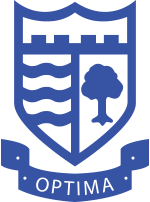


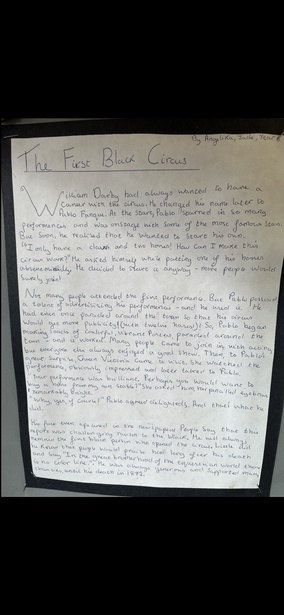
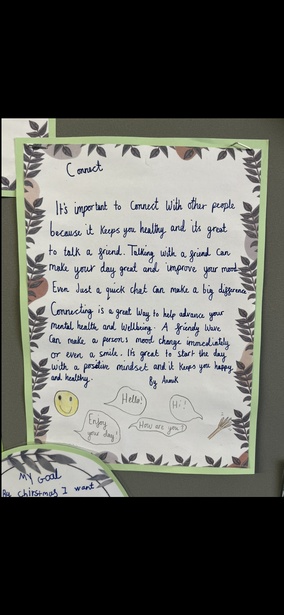

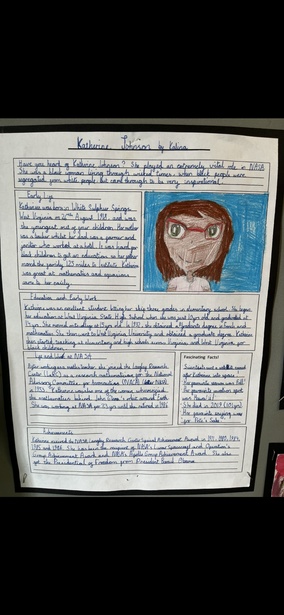
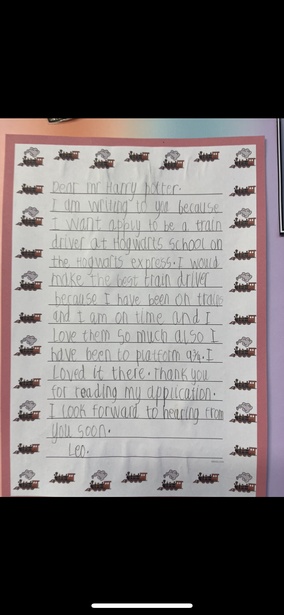
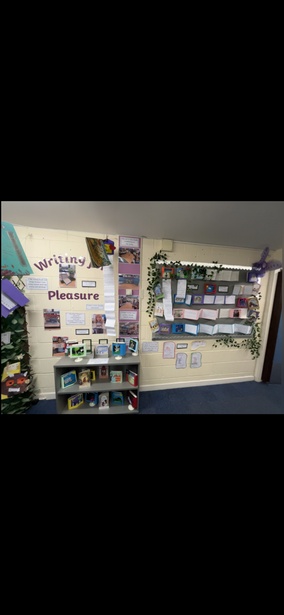
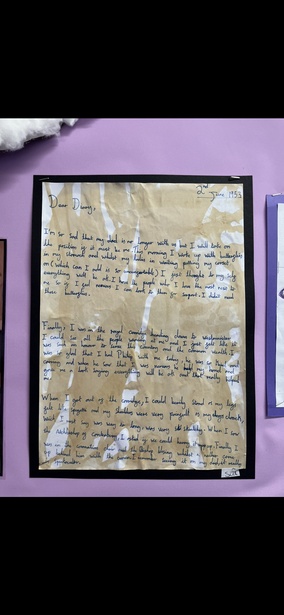

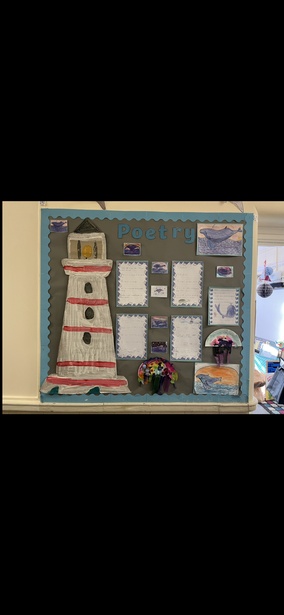

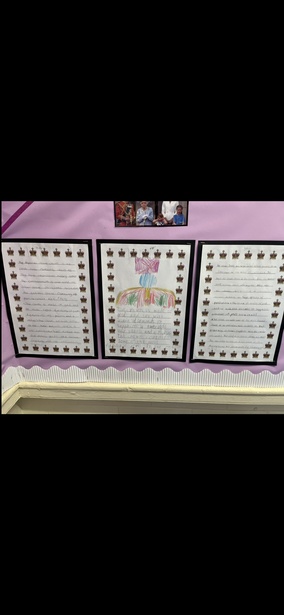
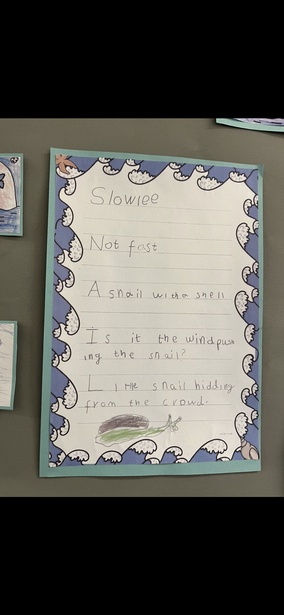
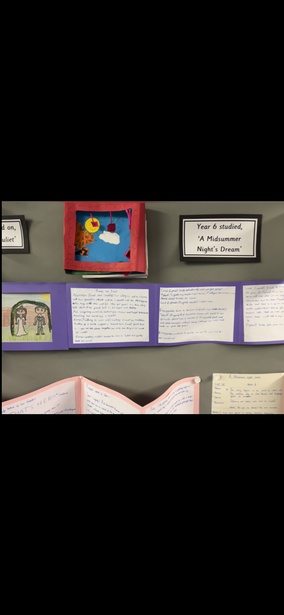

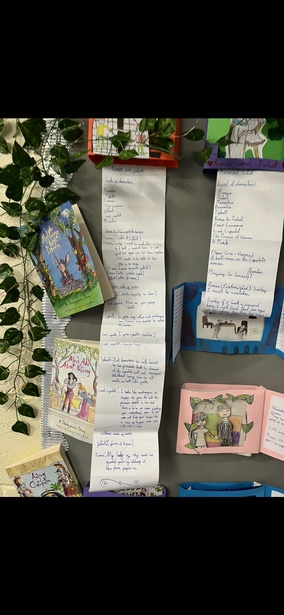
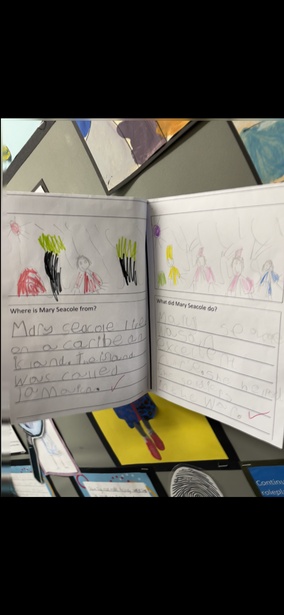
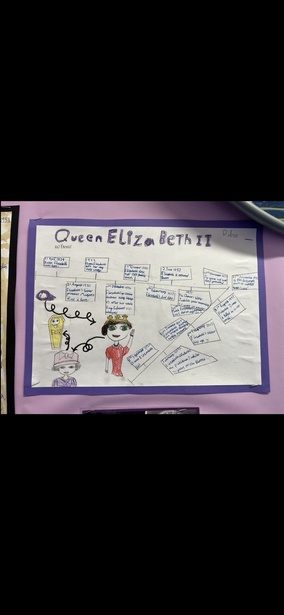
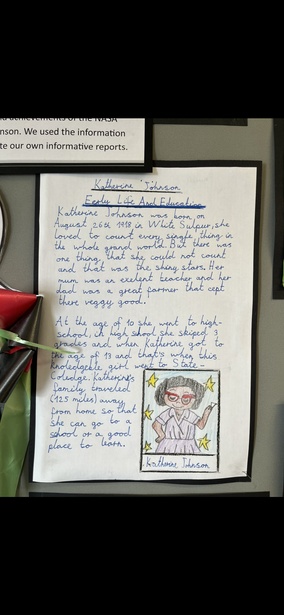
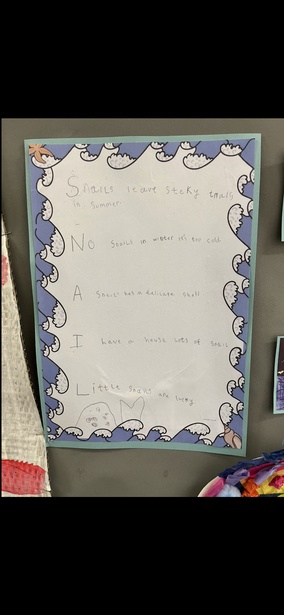
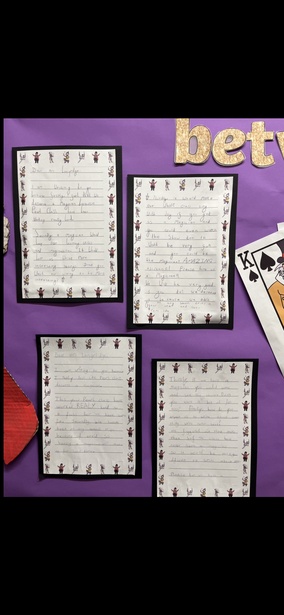
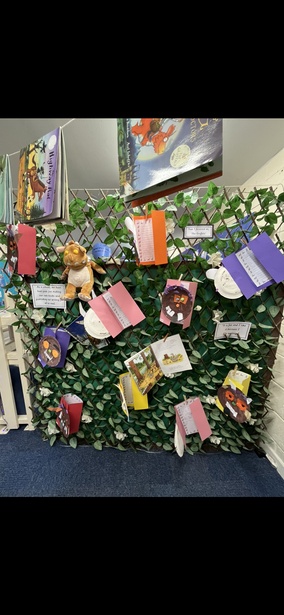
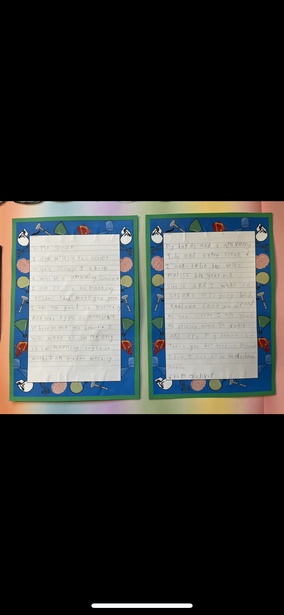



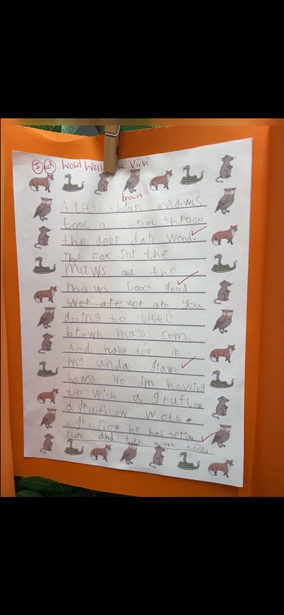

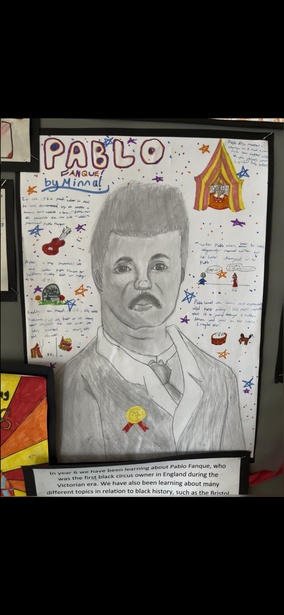
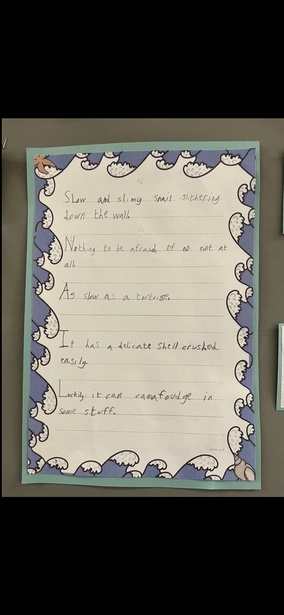
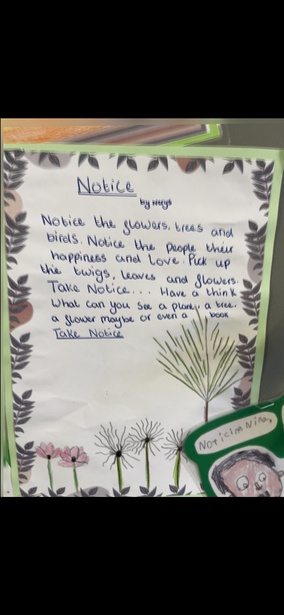
.JPG)
.JPG)
